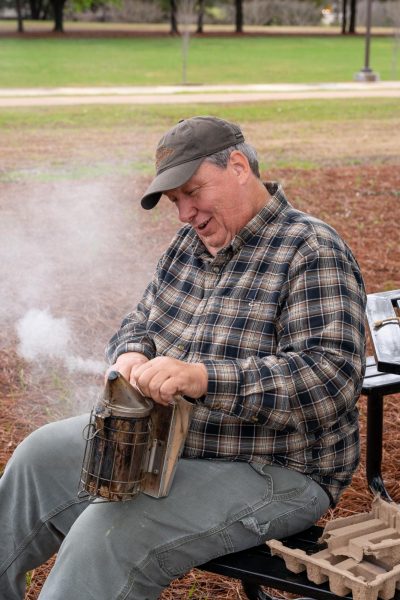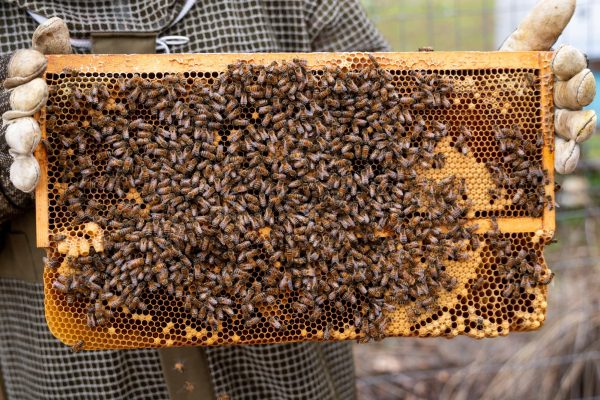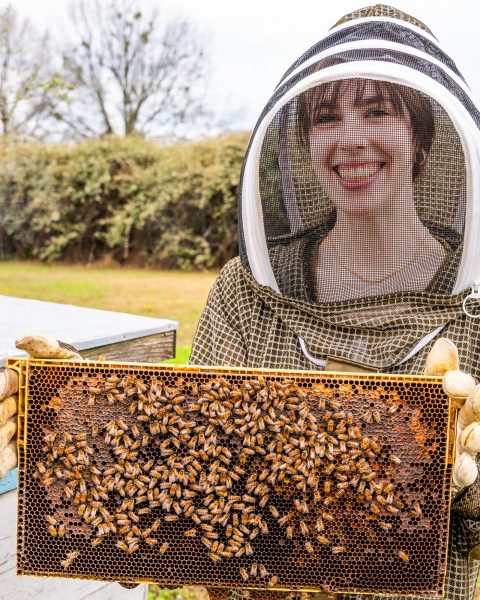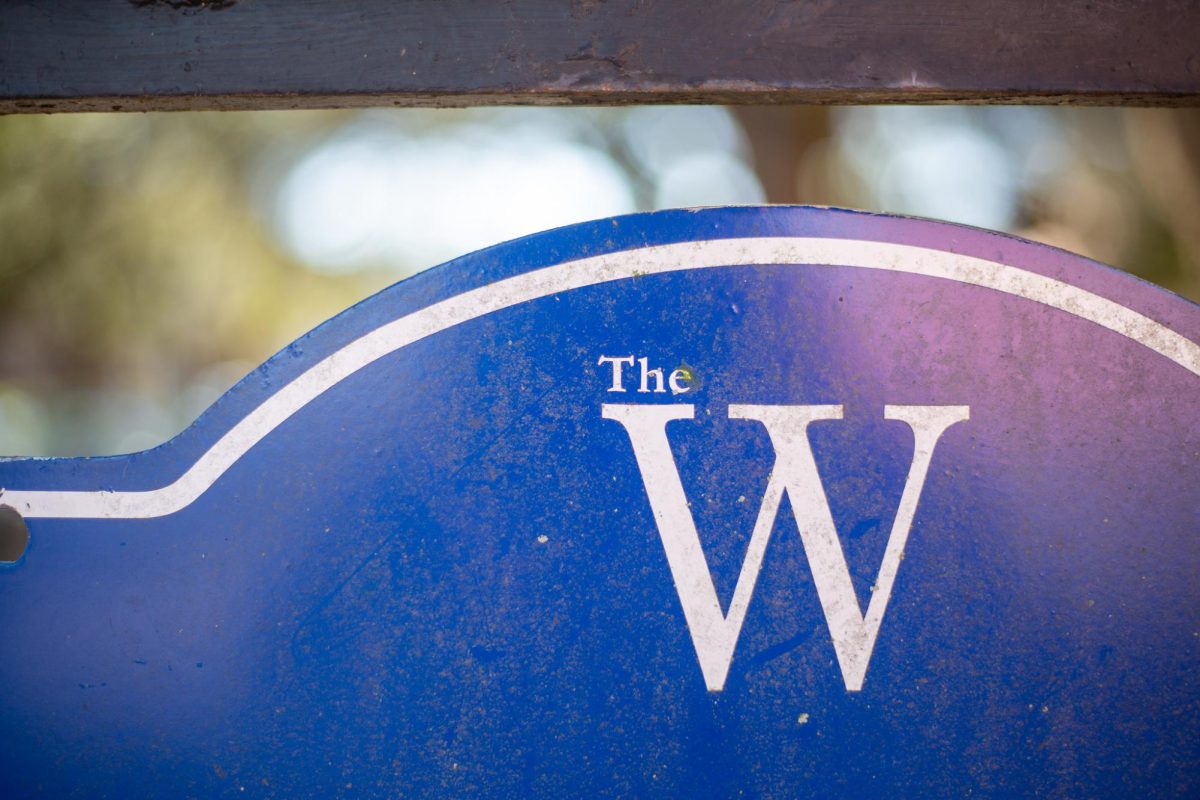Mississippi beekeepers make between $2.1 and $3.1 million annually from the sale of honey and beeswax, starter colonies, queens and fees to pollinate farmers’ crops. According to Jeffrey Harris, an associate professor of apiculture at Mississippi State University, last year was a historically bad year for every form of Mississippi apiculture.
A spring freeze and drought conditions through summer and fall killed blooms of many flowers, most significantly the Chinese privet and Chinese tallow, two weeds that can account for up to 90% of a Mississippi producer’s honey production. Harris said that recent interviews with beekeepers led him to believe that the state’s honey production was 40% of the annual average, with some beekeepers producing 25% of the average.
“Hopefully, last year was a once-in-a-decade event. It certainly was – I’ve been here 12 years and this the first time we’ve ever had such a double whammy,” Harris said. “It affected everything, not just honey.”

The lack of flowers, and the subsequent lack of honey, made it difficult for local producers to grow colonies large enough to sell starter colonies and queens and to grow enough bees to ship them around the country to pollinate crops.
Beyond Mississippi, honeybees pollinate $150 billion worth of crops in the United States each year. Despite their economic significance, beekeepers in the U.S. lost an estimated 48.2% of their colonies from April 2022 to April 2023. The average annual loss over the past 12 years has been 39.6%, according to the Bee Informed Partnership.
MSU researchers have been researching the multifaceted cause of bee colony collapse, which includes the influence of herbicide and pesticide use, weather events and disease. Most apparent is the impact of the Varroa destructor mite, a parasitic mite that was introduced to U.S. honeybees in 1987.
The Varroa mite feeds on bees early in their life cycle before they emerge from brood cells as adults. Once infected bees emerge, riddled with mites, underweight and with reduced life spans, they prove too weak to support the hive. Robber bees from an outside hive come to steal the weakened hive’s honey, and the mites are then transferred to the next healthy hive.

Harris said that before the introduction of the mite, beekeepers would be unfortunate to see 15% annual colony mortality. Now, U.S. honeybee colonies infested with the Varroa mite face certain collapse without intervention, falling to viruses vectored by the mite.
In an ongoing research project, Harris is testing a new insecticide to manage Varroa mites with fewer negative health effects on bees and said many other groups are working on new insecticides.
“Of course, you’re putting poison in a colony that kills insects – go figure what might be the health effects on bees,” Harris said. “So, the trick is, can we find ways to control the mites that are more safe for bees?”
To further mitigate the effect of the Varroa mite, Esmaeil Amiri, an MSU assistant professor of apiculture, is working with commercial beekeepers to understand the relationship between Varroa mites, viruses and honeybees, as well as strategies that honeybee queen breeders can use to breed resistance to Varroa mites and viruses.
In another project to begin this spring, Esmaeil and USDA collaborators will establish research apiaries near weather stations throughout the state to better understand the how changing climate, disease and pesticides affect honeybee mortality.
Many planting guides include plants that provide pollen and nectar for bees, but little is understood about what plants are most nutritious for bee colonies. Priyadarshini Chakrabarti Basu, an assistant professor of pollinator health and apiculture, is leading a collaborative effort between dozens of scientists and beekeepers in North America to develop the first pollen nutrition database that will identify what pollen is significant to all bee species and is creating a phenology wheel to map where and when this pollen is available for bees.
“If you give me a bowl of salad versus a bowl of fries, I will probably pick up the hot french fries over a bowl of salad. But just because I’m momentarily attracted to the fries does it really mean that they are good for me? Nope,” Basu said. “And that’s what we’re trying to do, we’re trying to figure out the salad versus the fries in the bees’ habitat.”

When a honeybee colony is not getting the nutrition it needs, it becomes more vulnerable to disease. Mckaela Whilden, a doctoral student in life sciences from Bryan, Texas, is working with Basu to investigate European foulbrood disease, a bacterial disease that presents a uniquely high risk to bees sent to pollinate blueberries.
“Basically, beekeepers are sending their bees into blueberries for pollination services and they’re coming back with really high loads of European foulbrood,” Whilden said. “And so the research question is: Is it because of something related to the blueberry crop cycle specifically, or is it related to poor nutrition within the blueberry pollen?”
Despite current challenges to beekeeping, the number of backyard beekeepers remains steady. Harris said that given frequent rains in recent weeks, this year looks to be more promising for Mississippi apiculture.
“I was just in some bee colonies and they’re looking awesome,” Harris said. “Flowers are blooming, and the bees are growing so it’s an exciting time and I think we’re all getting excited. Maybe we’ll have a decent year this year.”
























































































Pat Martin • Mar 24, 2024 at 9:55 am
Very interesting read.. my daughter has bees we sure love the honey.. thanks for the information
Dawn Morgan • Mar 21, 2024 at 7:32 am
Thank you Sam for a great article.